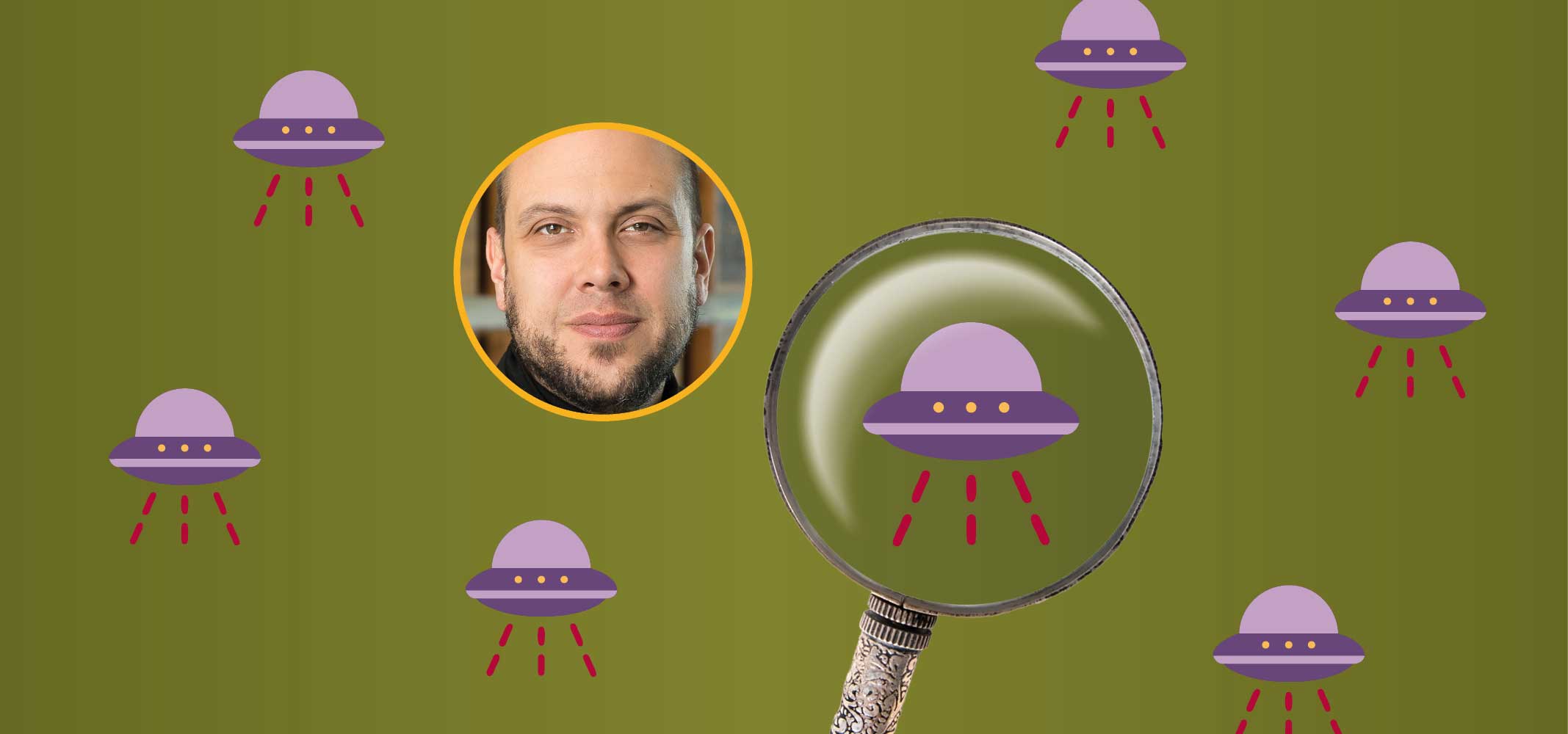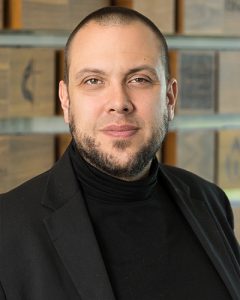
CTS Talks: Dr. Robert Saler
Conspiracy Theory: Can Theology Help Us Understand?
In this talk, Robert Saler will consider the centrality of conspiracy theory participation in the U.S. experience (past and present), and will explore how the disciplines and practices of theology can help us understand conspiracy theory participation and – perhaps – address its negative effects in our society.
Experience a series of captivating “TED Talk” style lectures at CTS Talks. Delivered by distinguished guests who are subject matter experts, these thought-provoking talks provide a platform to gain insight on topics that tie together intellectual curiosity and community reflection.
Dr. Robert Saler
 Robert Saler serves as Associate Dean for Evaluation and Assessment, Associate Professor of Theology and Culture, Executive Director of Center for Pastoral Excellence and the Lilly Endowment Clergy Renewal Programs at Christian Theological Seminary (CTS) in Indianapolis. As part of that call, for the past eight years he has directed the Lilly Endowment Clergy Renewal Programs, which are administered by the seminary on behalf of the Endowment. Prior to coming to CTS he was pastor of Bethel Lutheran Church in Gary, IN and also taught at the Lutheran School of Theology at Chicago (from which he received his Ph.D. in 2011). His first book, Between Magisterium and Marketplace, deals with issues of ecclesiology and theological creativity, while his second book (Theologia Crucis) examines how the theology of the cross impacts global theological literature. He is also the author of All These Things Into Position: What Theology can Learn from Radiohead, Planning Sabbaticals: A Guide for Congregations and Their Pastors, and Sounding the Sacred: Arvo Part and Spirituality (co-edited with Peter Bouteneff and Jeffers Engelhardt). His courses at CTS are generally open to the public so that masters-level students can have the experience of studying alongside members of area congregations; the pedagogical challenges and opportunities in this are very gratifying.
Robert Saler serves as Associate Dean for Evaluation and Assessment, Associate Professor of Theology and Culture, Executive Director of Center for Pastoral Excellence and the Lilly Endowment Clergy Renewal Programs at Christian Theological Seminary (CTS) in Indianapolis. As part of that call, for the past eight years he has directed the Lilly Endowment Clergy Renewal Programs, which are administered by the seminary on behalf of the Endowment. Prior to coming to CTS he was pastor of Bethel Lutheran Church in Gary, IN and also taught at the Lutheran School of Theology at Chicago (from which he received his Ph.D. in 2011). His first book, Between Magisterium and Marketplace, deals with issues of ecclesiology and theological creativity, while his second book (Theologia Crucis) examines how the theology of the cross impacts global theological literature. He is also the author of All These Things Into Position: What Theology can Learn from Radiohead, Planning Sabbaticals: A Guide for Congregations and Their Pastors, and Sounding the Sacred: Arvo Part and Spirituality (co-edited with Peter Bouteneff and Jeffers Engelhardt). His courses at CTS are generally open to the public so that masters-level students can have the experience of studying alongside members of area congregations; the pedagogical challenges and opportunities in this are very gratifying.
Having been a Lutheran pastor for a decade, he has recently been received into the Eastern Orthodox Church, and serves as the chair of the ecumenical section of the International Orthodox Theological Association as well as editor of the IOTA Forum for that organization. He is currently a fellow at the Center for the Study of Religion and Culture at Indiana University/Purdue University Indianapolis, and as part of that work he is engaged in a three-pronged project related to American Eastern Orthodoxy and internet culture: an exploration of anti-modernist rhetoric and consumerism in American orthodoxy, a more sociological analysis of Orthodox anti-modernism and white supremacy movements online, and an evaluations methodology project on how online religious subcultures impact parish ministry in American Eastern Orthodoxy. He is also writing a book on Luther in dialogue with Orthodox theology.
His other major passions involve evaluation methodologies and assessment methods for religious institutions, as well as live music and trail running. He, his spouse, and their five children reside in Indianapolis, IN.


